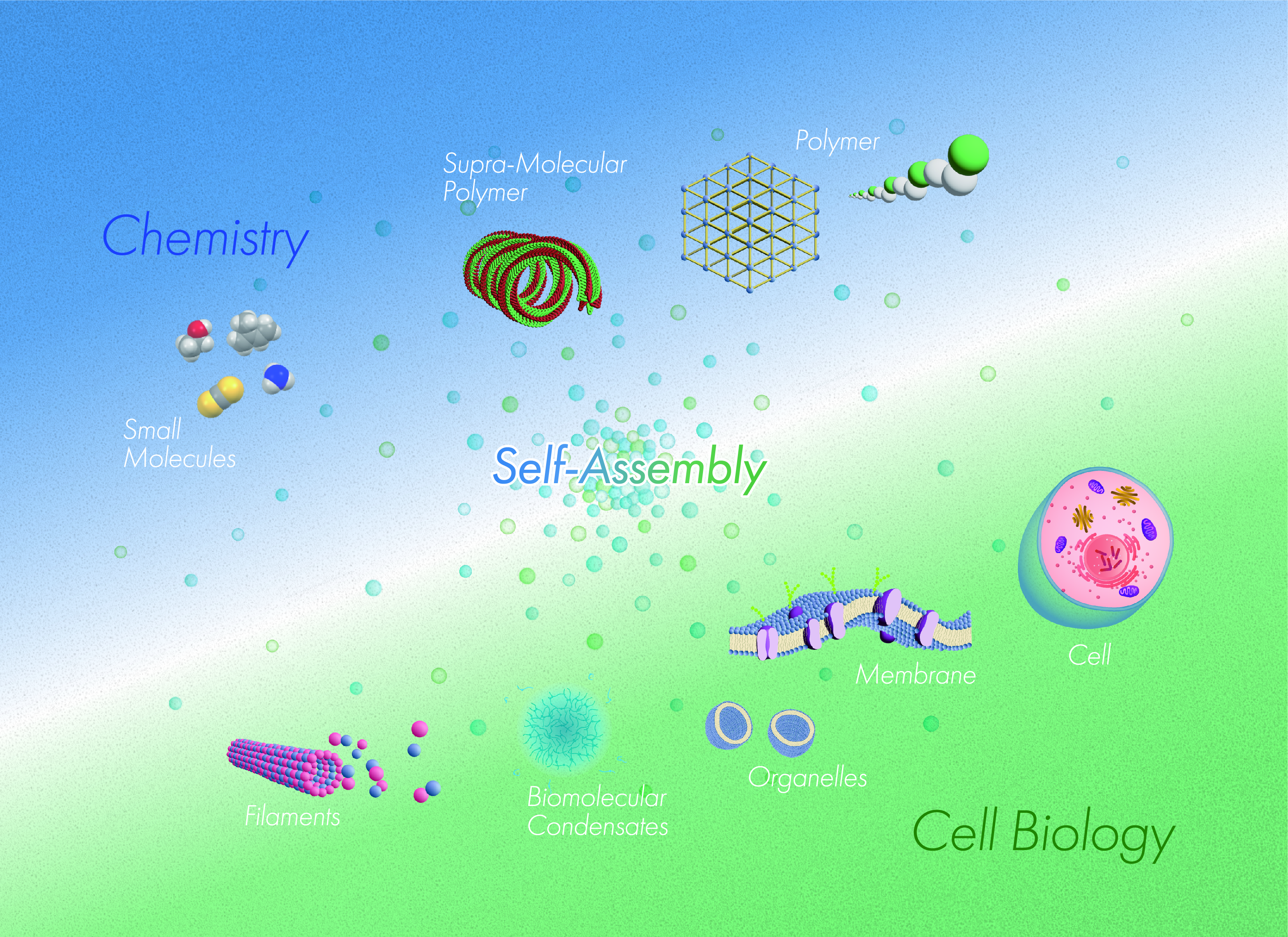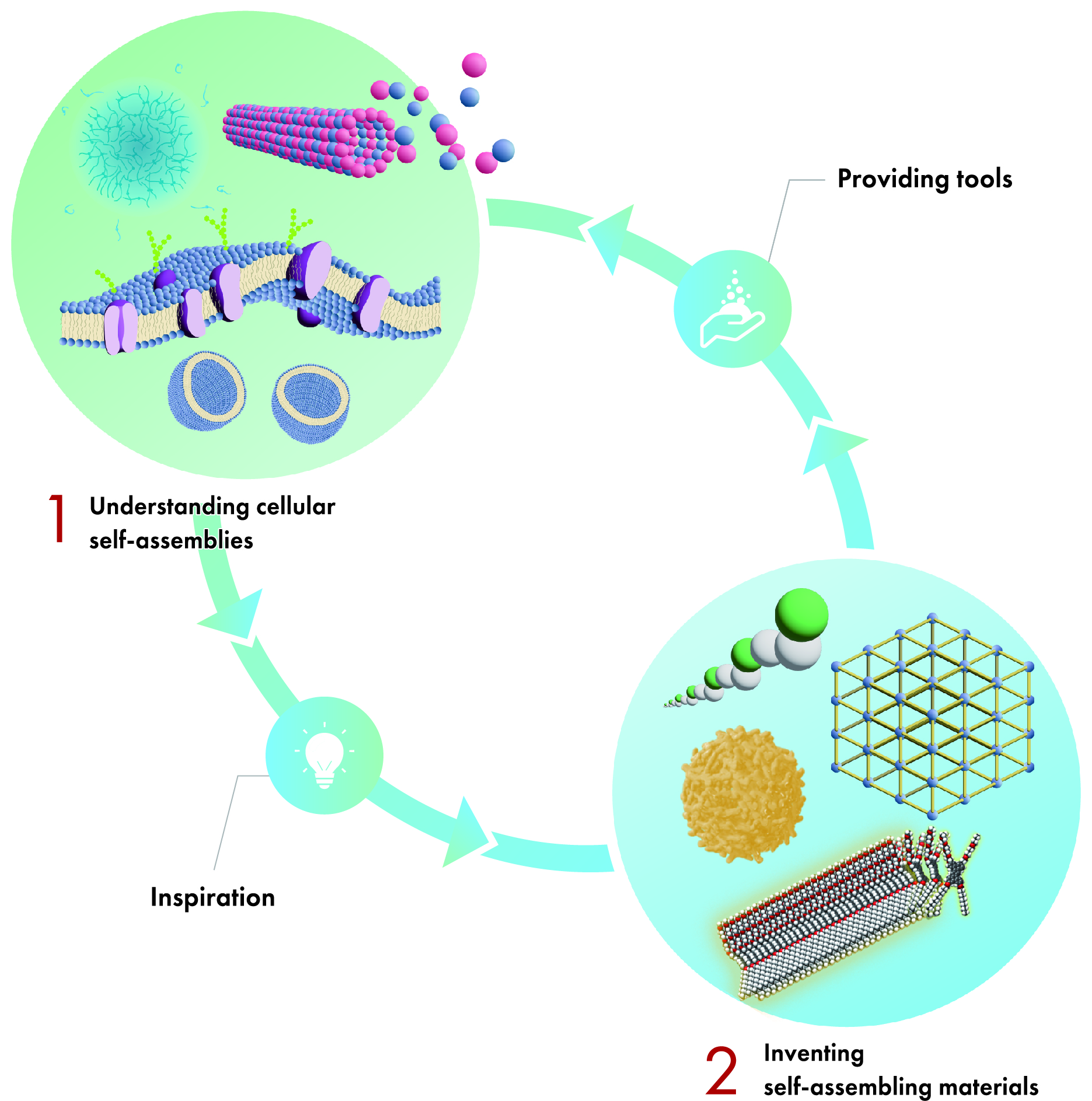The Director’s Vision

Director Motonari Uesugi
Research
Through the coordinated fusion of chemistry and cell biology, iCeMS endeavors to understand the principles that govern intracellular self-assembly happening at the boundary between life and matter and to use that inspiration towards the innovation of functional self-assembling materials.
Life is made of chemicals; however, chemicals are not life. At iCeMS, we believe “chemical self-assembly” forms the boundary between matter and life. Many self-assembling structures, such as membrane structures, membrane-less organelles, the cytoskeleton, and chromatin, exist within cells and perform complex functions. iCeMS seeks to understand intracellular self-assemblies and use that wisdom to create innovative self-assembling materials to solve global problems. With these intentions, we are bringing together a wide range of researchers from disparate fields, such as cell biology, materials science, chemical biology, synthetic chemistry, and computational science, to achieve both diversity and focus.

Specific research projects
(1) Understanding intracellular self-assembly at the boundary between life and matter
Life is the ultimate example of self-assembly. We will lead the way in understanding intracellular self-assembly mechanisms that govern compartmentalization, signal transduction, gene expression, and energy metabolism, as well as in developing the chemical tools that make that understanding possible.
(2) Functional self-assembling materials inspired by intracellular self-assembly
Chemists can find inspiration in intracellular self-assembly. Drawing on that inspiration will lead to the creation of novel functional materials to face the challenge of resolving global problems. Self-assembling pharmaceuticals, self-assembling materials for gas or liquid purification, self-assembling materials for energy storage, and self-assembling materials that chemically convert carbon dioxide are being developed.

System reform and globalization
As a test bed for university system reform and next-generation research laboratories, iCeMS is advancing proof-of-concepts to realize the following six points of our vision.
Domestic and international strategic recruitment
We will conduct trials of new methods to recruit domestic and international graduate students and research fellows. Additionally, we will work with university organizations to give undergraduates the opportunity to experience research from the earliest stages of their careers.
Global Development through On-site Labs
iCeMS will utilize its six on-site laboratories as test beds for globalizing Kyoto University, piloting joint research and equipment sharing, as well as serving as centers for student recruitment, graduate school entrance examinations, and fundraising activities.
Analysis Center as core facility model
iCeMS Analysis Center supports the efficient sharing of cutting-edge research equipment and implements advanced management systems to serve as a core facility model for the university.
Innovation through the establishment of start-ups
Many start-up companies have been born from iCeMS. We will continue to pursue effective methods for establishing start-ups to expeditiously return our ground-breaking research results to society.
Optimization of communication with stakeholders
Fundamental research requires understanding and support from multiple stakeholders, including the government, universities, companies, the public, and investors. iCeMS is undertaking various initiatives to promote the understanding and acceptance of the value of our research.
Optimization of internal communication
Through optimizing internal communication, we aim to improve efficiency, compliance, and satisfaction, as well as promote interdisciplinary collaboration. Both female and international staff already play an active role at iCeMS. However we are implementing progressive initiatives to continue to address unconscious bias and achieve a high level of diversity and inclusion (D&I).